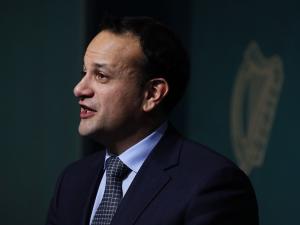
By Michelle Devane, Press Association
The Irish premier has warned that soldiers may return to the border if Brexit goes "very wrong".
Leo Varadkar said that in a worst-case scenario there could be a return of armed customs posts after the UK leaves the EU.
Mr Varadkar told Bloomberg TV the border at present was "totally open" but that if things went "very wrong" it would "look like 20 years ago".
Asked to describe what a hard border would look like if the outcome of Brexit was a worst-case, Mr Varadkar said: "It would involve customs posts, it would involve people in uniform and it may involve the need, for example, for cameras, physical infrastructure, possibly a police presence or army presence to back it up."
His comments have been criticised by Democratic Unionist Party MP Gregory Campbell who said the Taoiseach should "dial down the rhetoric".
"This is deeply unhelpful talk. Mr Varadkar knows full well the connotations of such statements and he knows it's nonsense," he added.
A Government spokesman issued a statement after the interview to clarify that Mr Varadkar was not referring to the Irish Army.
"The Taoiseach made it clear in the interview that the Government is determined to avoid a no-deal scenario and the consequent risk of a hard border," the spokesman said.
"He was asked to describe a hard border, and gave a description of what it used to look like, and the risk of what it could look like in the worst-case scenario.
"He was not referring to Irish personnel and the Irish Government has no plans to deploy infrastructure or personnel at the border."
Mr Varadkar also said Ireland is being victimised in the Brexit process and the government would not be giving up on the backstop mechanism for promises that the border issue would be rectified at a later date.
It comes as the clock ticks down to the March 29 deadline for the withdrawal of the UK from the EU.
"The problem with that in the context of Irish politics and history is that those things become targets, and we've already had a certain degree of violence in the last few weeks."
He said Brexit discussions had been dominated by speculation on its potential impact on trade and the economy, but that for Ireland it was about ensuring continued peace on the island and that the progress made in 20 years since the Good Friday Agreement was not lost.
He said that Ireland had already compromised in the Brexit negotiations and that the withdrawal of the UK from the EU was potentially going to cause a lot of harm to other countries.
"We're the ones already giving," Mr Varadkar said.
"The UK wanted a review clause in the backstop and we agreed to that, the UK wanted a UK-wide element, so why is it the country that is being victimised is the one that's always asked to give?"
The Taoiseach said he had not yet seen any technologies that could ensure that no hard border emerged between Ireland and Northern Ireland.
"They don't exist and nobody has been able to show them to me," he said.
"Why would we give up a legal guarantee and something we know will work in practice for a promise to sort it out later, or a promise to invent technologies? That's just not a serious position."
He added that Brexiteers who were against the backstop, but also claimed that they were against a hard border, were being contradictory.
"People who say they're against a hard border and also against a backstop - that's a contradiction," he said.
Speaking from Davos where he is attending the World Economic Forum, Mr Varadkar said it was "very unlikely" that Brexit would not happen at all.
He said Ireland and the EU had already made concessions and that they would continue to "help" move the impasse forward.
"We could work with a Norway-plus model. We could work with a Canada-model with special arrangements for Northern Ireland," Mr Varadkar said


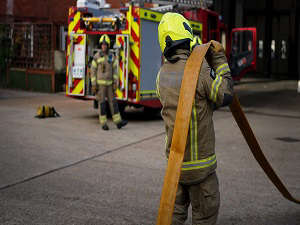 ‘Extreme’ wildfire risk issued for Northern Ireland
‘Extreme’ wildfire risk issued for Northern Ireland
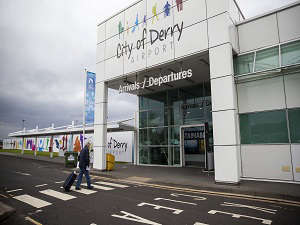 Londonderry to Heathrow flight route secured for two more years
Londonderry to Heathrow flight route secured for two more years
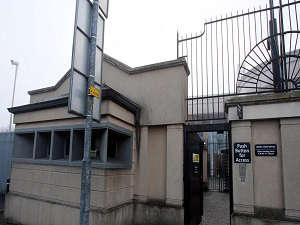 Man remanded in custody over 1979 murder of part-time soldier in Co Armagh
Man remanded in custody over 1979 murder of part-time soldier in Co Armagh
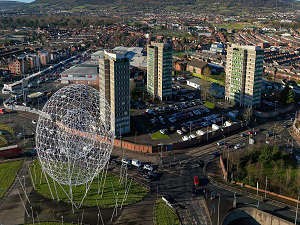 Warning over reckless behaviour after teenage girl hit on head with brick
Warning over reckless behaviour after teenage girl hit on head with brick
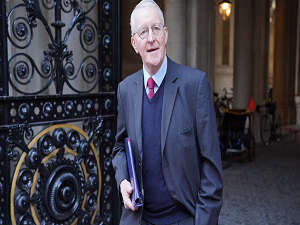 Hilary Benn: Increase in minimum wage will be ‘real help’
Hilary Benn: Increase in minimum wage will be ‘real help’